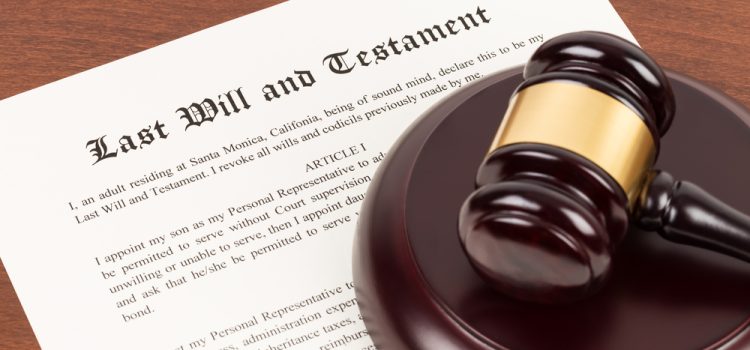A will is an important document to ensure that upon your death your assets are distributed according to your wishes rather than as the state determines. If the idea of creating a will feels like you’re tempting fate, think of it as a road map you’re leaving your family, so they don’t have to stress over making the right decisions on your behalf.
If you do not have a will, you are considered to have dies intestate and your property will be divided according to specific state laws and rules rather than as you wished. You may have heard of both a living will and a last will and testament. These are two different documents that serve different purposes:
A living will serves to state your wishes in the event you cannot communicate. This is a legal document outlining which life support services you approve or disapprove of in certain situations. Massachusetts does not recognize living wills. In Massachusetts, these wishes are contained in your health care proxy. A health care proxy is a document authorizing a health care agent to make medical treatment decisions on your behalf should you be unable to do so for any reason.
A last will and testament dictates how you wish your assets to be distributed and utilized following your death. This article will address five crucial questions you need to answer to create your last will and testament.
What is a personal representative, and who should I appoint?
A personal representative is a person you designate to carry out your intentions and manage the estate during the period of probating the estate and distributing your assets. This used to be known as an executor. Depending on your wishes, the role of a personal representative can be relatively straightforward or incredibly complicated and time-consuming. The right personal representative will be someone who is responsible, in good financial standing, and can carry out your wishes. It can be a relative and can be someone who is also a beneficiary in the will. In certain circumstances (such as complex estates or difficult family circumstances), it can be a paid professional.
What Is Your Family Situation?
If you have young children, you will want to ensure that there is a trust with a trustee to manage assets or the court will have to appoint a guardian ad litem to oversee the assets until your children are eighteen. A trust is a document nominating a trustee to oversee your assets for someone’s benefit. Your will can also nominate a guardian to care for them in the event that both parents die with children under age eighteen. As a parent, you want to nominate someone who will raise your children as you would. There are several factors to consider: who your kids will be comfortable with, who shares your values, and who has the capacity to raise additional children. If you have children or family members with special needs, consider how their needs will continue to be met in the event you are not around. While you cannot appoint someone, the Court always takes the wishes of the parents into account. You may also need special preparations if you have children or family members with special needs or disabilities.
Are you leaving enough money to care for your family?
You want your family to be taken care of financially to meet their needs after you pass away. Many people opt for a life insurance policy to cover expenses. There are many different methods of calculating the right amount. It is important to factor in long term obligations such as any mortgages, real estate taxes, educational costs for which you do not have a 529 plan and the ages of you, your spouse and your children. You also need to consider the type of policy that works best for you and your family.
How do you want your assets distributed?
In order to properly draft a will, the first step is figuring out what assets you own and whether or not they can be passed outside of probate (by naming a death beneficiary on an account or jointly owning property with a right of survivorship) or need to pass through the will and be probated in Court. These combined assets make up your estate. Next, you need to decide who will inherit your estate and name them as your beneficiaries in the will or as death beneficiaries on an account to avoid the need to probate the will. Any assets not left to a death beneficiary or transferred into a trust during your lifetime will likely need to go through probate, a process where the court determines how to distribute your property after you die. In addition to assets, some people choose to outline specific instructions for personal property or heirlooms to avoid family disputes.
Can I do this myself, or should I use a professional?
While it may be tempting to go it yourself, creating and filing a legal last will and testament are complex processes. Wills created online are often filled out incorrectly and therefore aren’t legally valid. Don’t make this mistake. The best way to ensure your final wishes are properly outlined and carried out is by working with an experienced estate planning attorney. Contact our office today to discuss your end of life planning.




